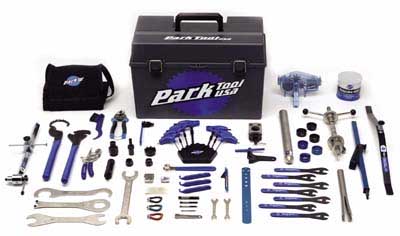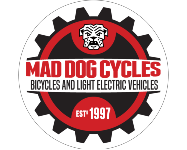Scheduled Bike Maintenance Chart
|
When Should I Service my Ride? |
 |
|
|
|
| every ride | monthly (or 500 miles) |
six months (or 2,500 miles) |
yearly (or 6,000 miles) |
| check tire pressure and inflate to recommend pressure is needed. | clean the bike with a rag (or soap and water is its muddy) and inspect the frame and components for signs of wear such as cracks. | clean and wax the frame to protect the paint/finish. once its clean inspect all areas of the frame for damage such as cracks or fatigue. | check all bearing systems: hubs, bottom bracket, headset, and pedal: adjust/overhaul them as needed. |
| inspect tires and tread for wear and embedded objects that may cause a flat. | wipe the chain and cassette cogs clean with a rag and light degreaser and re-lube the chain. | check and replace tires if needed. also check that your spare tube is good, and you have enough patches/glue. | check all cables and housing for fraying, breaks, rust and corrosion. replace if necessary. |
| check that all quick releases are tight and that the wheels are secure in the frame. | check the wheels for loose spokes that make make the wheel weaker. | check the hubs. bottom bracket, headset: adjust and.or overhaul as needed. | replace brake pads, rubber brake hoods and handlebar tape if necessary. |
| pull the brakes to make sure that they are contacting the rims properly and not rubbing the tires. | check the following bolts to make sure they are tight: crankbolts, pedals, seat-bolt ,stem bolts, handlebar binder bolts, and all other accessorys | check all cables and housing for fraying, breaks, rust and corrosion and replace as needed. | clean the wheels and carefully inspect for signs of wear such as worn sidewalls (braking surface) or cracks at the spoke nipples. |
| compress the suspension to make sure that it is getting the full amount of travel and is functioning properley | lube the brake, derailleur and clipless pedal pivots | check brake pad wear,if groves are gone in brake pad replace them. | check the hubs, bottom bracket, and headset and adjust/overhaul as needed. |
| check chain for damaged links and lube if dry (excess lube is not necessary and will only collect more dirt) | lube the cables to prevent binding and check for frayingor rusty cables and replace them. | check the drivetrain (chain, chainrings and cassette) for wear. replace them if worn out. | overhaul pedals to check the bearings and add new grease. for toeclips, inspect the straps and replace as needed. |
| make sure you've got a spare tube, tools, pump, etc. | check clipless pedals and cleats for loose bolts/screws. | clean the drivetrain with a biodegradable solvent and rags. | |
| maintain and lube your suspension components according to their owners manuals. | maintain and lube your suspension components according to their owners manuals. |
